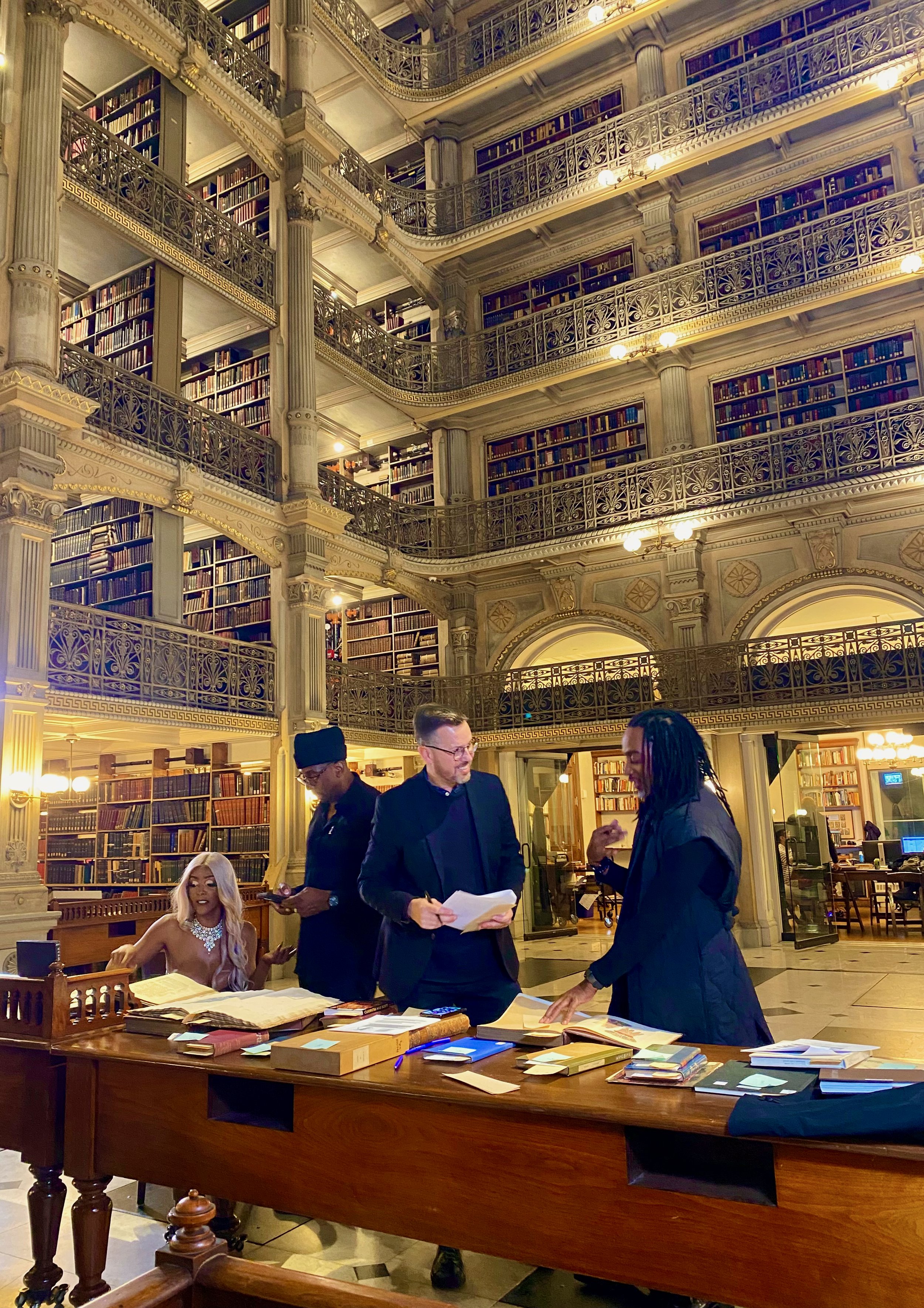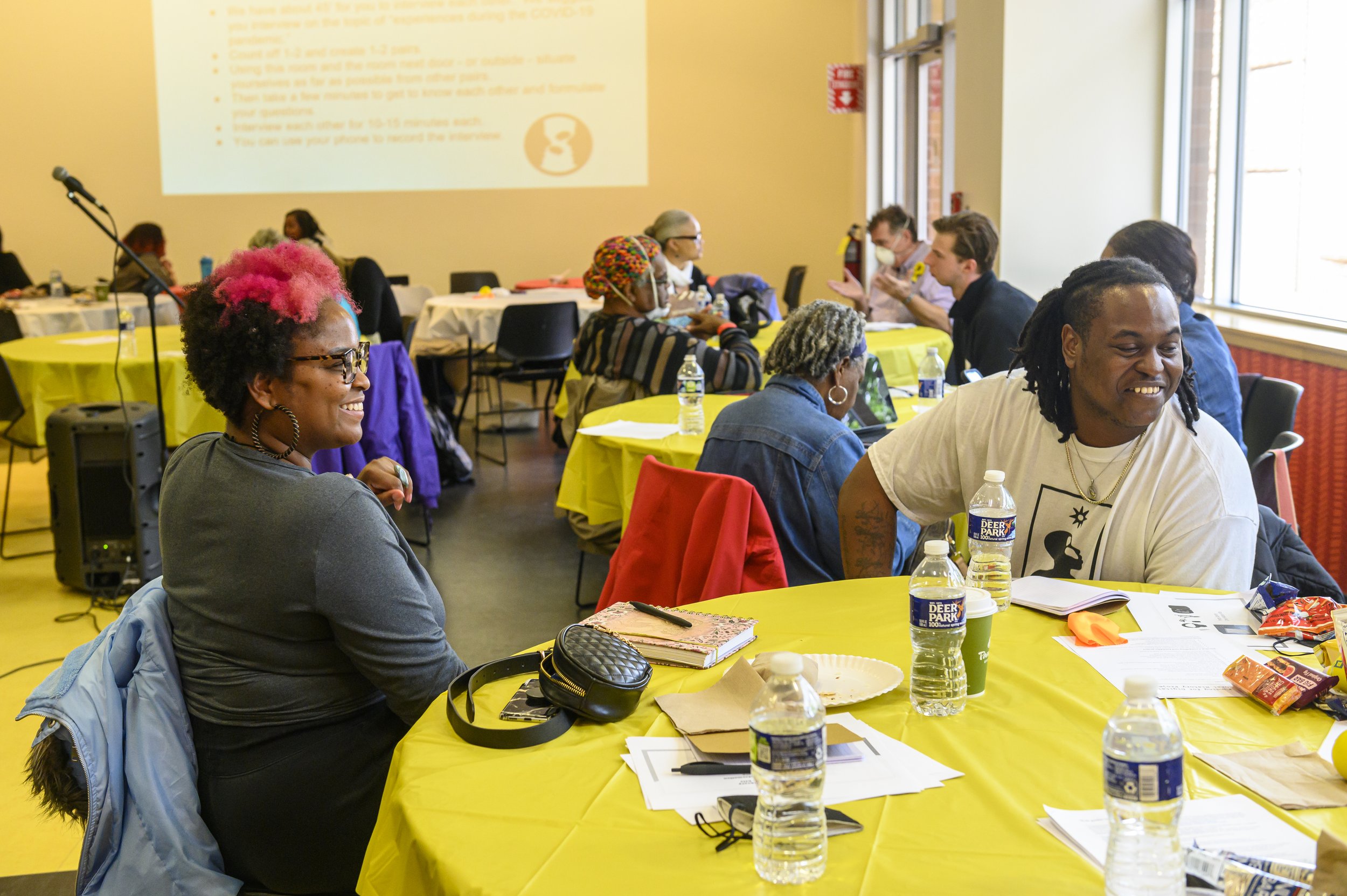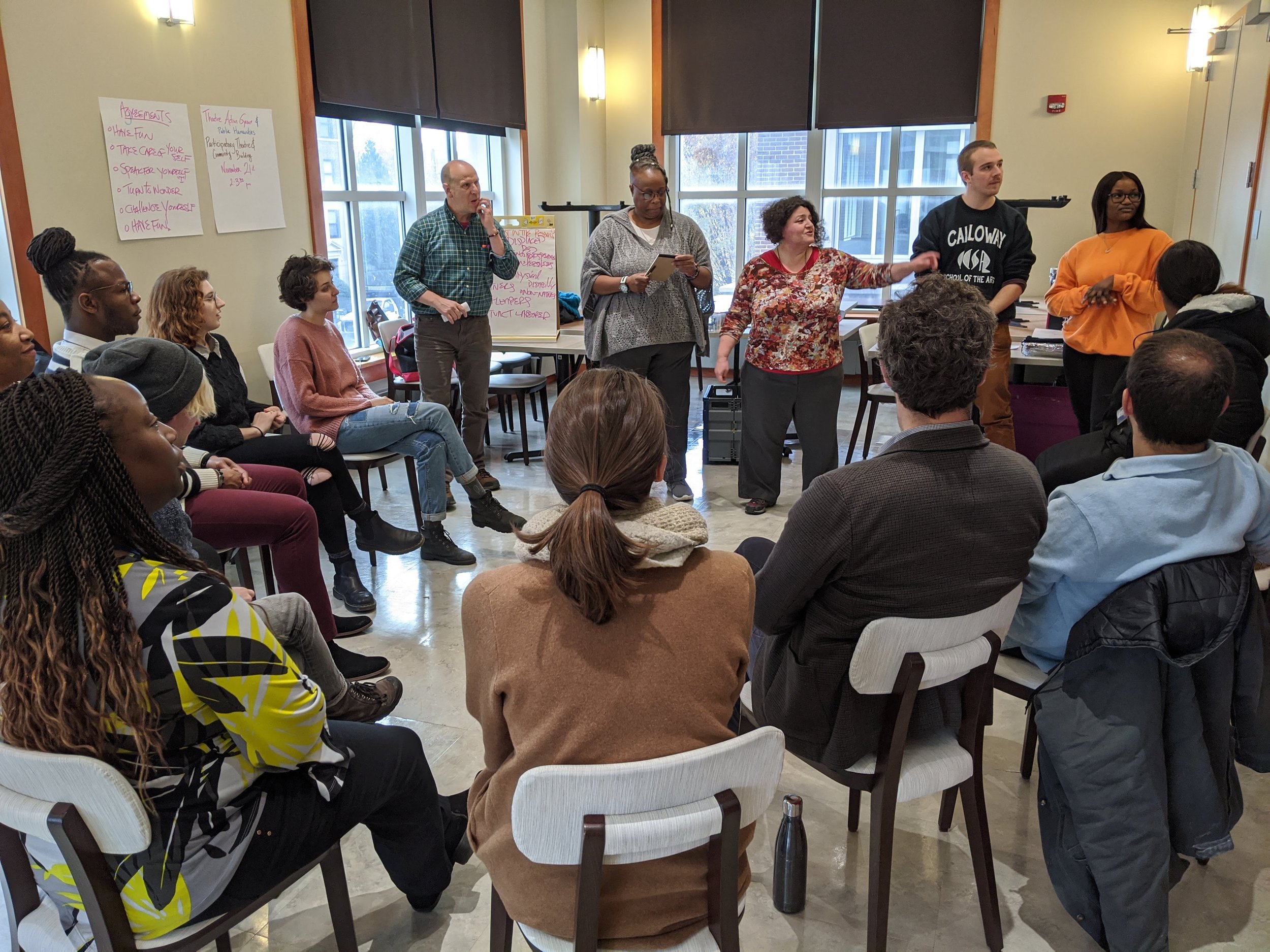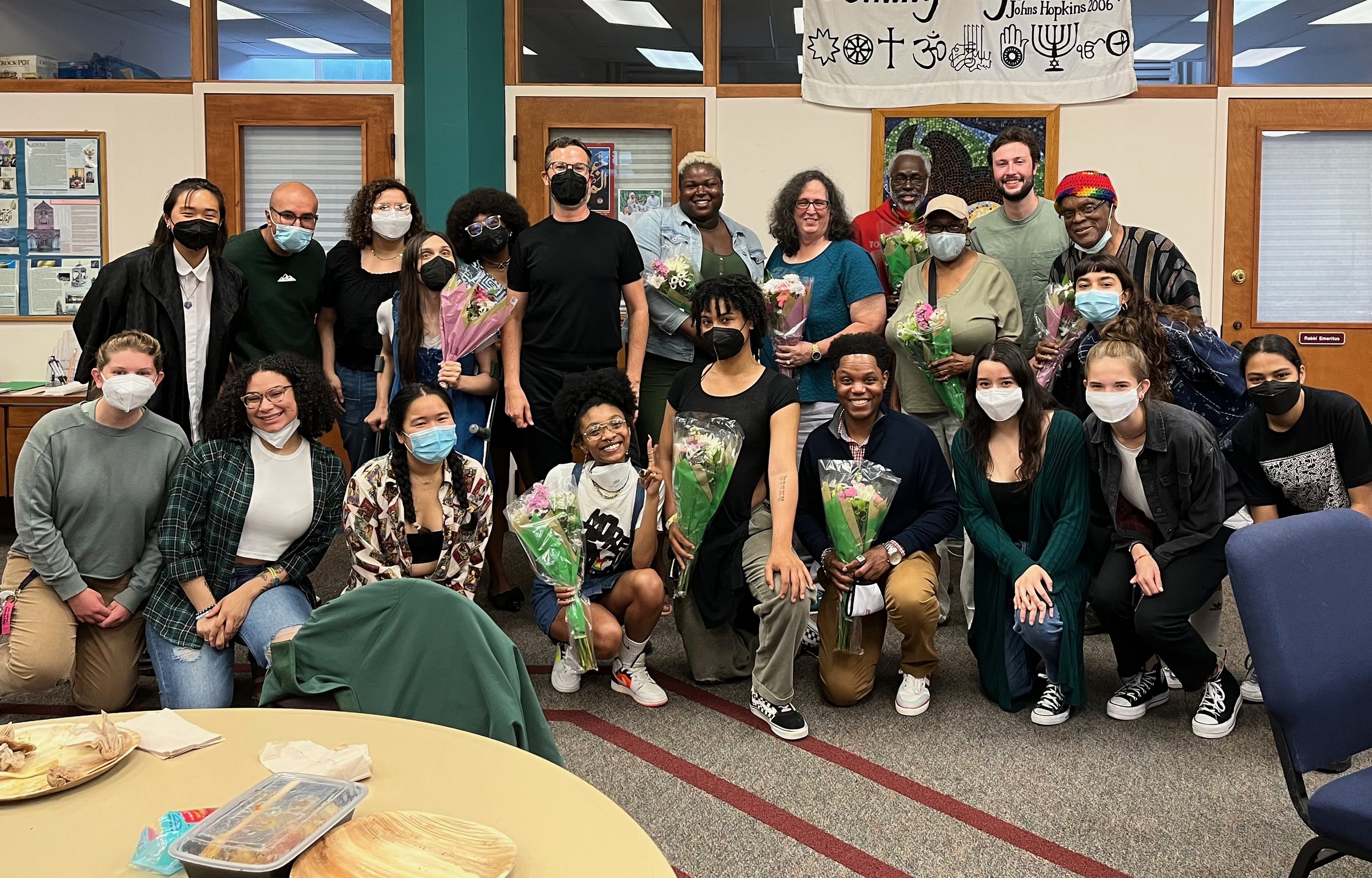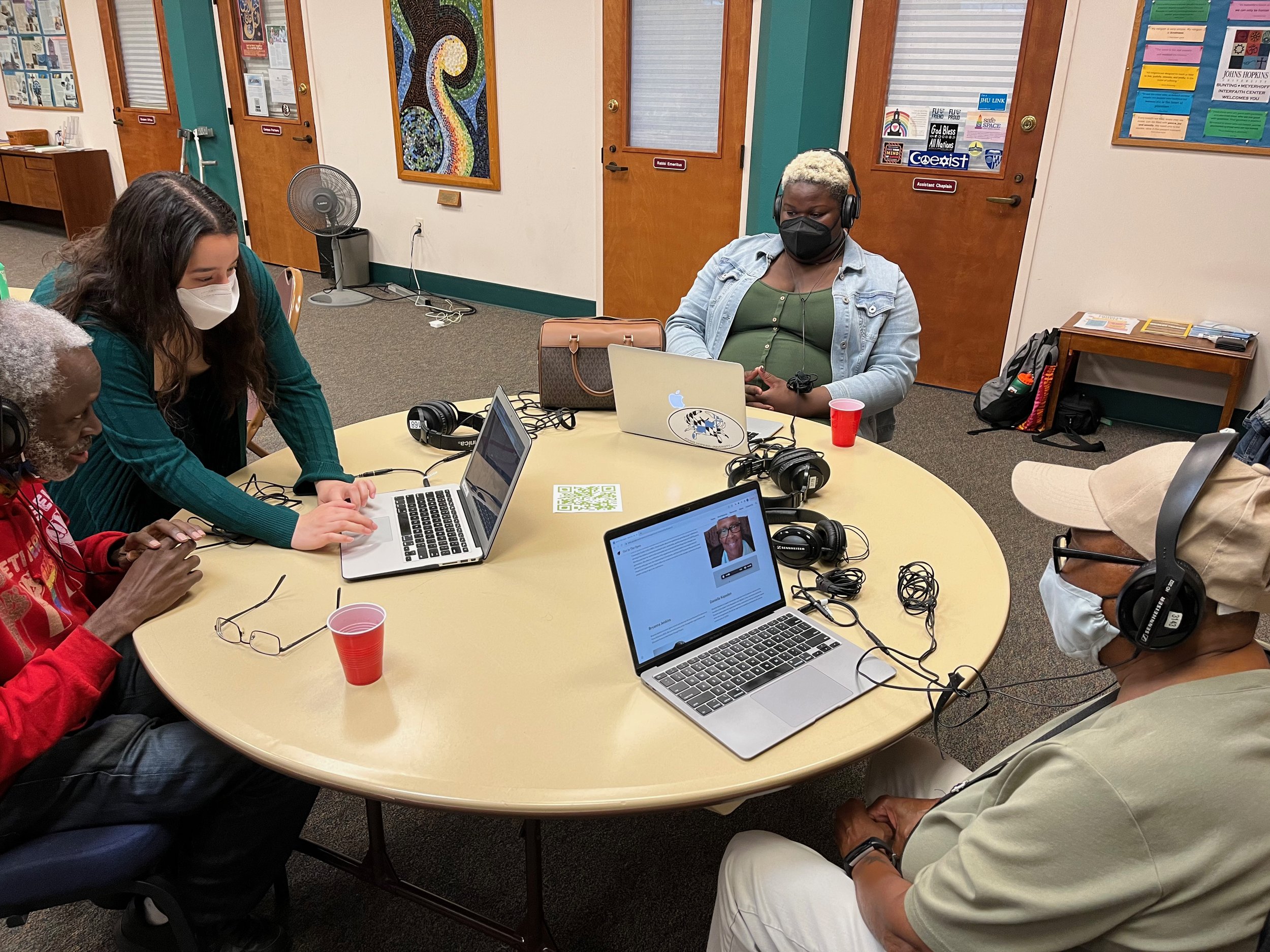Teaching Areas
Queer History
Performance Studies
Public Humanities
Oral History
Queer Theory
Interdisciplinary Humanities
Queer Oral History
Engaging critically with queer studies and oral history theory, students in Queer Oral History (Johns Hopkins University, Spring 2022) coordinated interviews with more than fifteen queer & trans Baltimore residents with the aim of archiving the city’s LGBTQ histories. The interviews are archived by Johns Hopkins University. The course culminated with a listening party at which students shared their audio portraits and website with narrators and community members. View students' website: Out In The Open: A Baltimore Queer Oral History Project.
Image: students produced a capstone “listening party” at which they shared their website and audio portraits with narrators and community members.
Interdisciplinary Approaches to Oral History
From start to finish, oral history is a creative act of collaboratively making meaning. During an interview, the narrator often comes to understand more about their own life, as well as their place in the larger culture and in the grand sweep of history. When oral histories are used in museum exhibitions, radio programs, or social justice projects, audiences often extend the act of interpretation by commenting or sharing their own stories. (Yale University, Fall 2016.)
Queer & Trans Public History
How do queer and trans people draw on history to re-envision the past, forge solidarities in the present, and map potential futures? This course draws on studies of queer affect and temporality; trans embodiment; and performance studies to explore how queer and trans people shape collective memory through “public history,” broadly defined to include digital archives, documentary film, performance, walking tours, and site-specific installations, among other cultural productions. (Johns Hopkins University, Spring 2020.)
Queer Sixties
This course examines U.S. queer politics and culture in the period immediately before the gay liberation movement, during the 1960s, highlighting the significance of homophile politics, drag and leather subcultures, transgender organizing, bar- and street-based publics, civil rights activism, and subcultural practices. Students learn to conduct historical research in online archives, finding and integrating primary and secondary sources in order to write about the past. (Johns Hopkins University, Fall 2021.)
Public Humanities and Social Justice
This course provides an introduction to the modes of inquiry and methods by which marginalized communities become partners in research and not simply objects of study, including participatory action research, collaborative oral history, indigenous research methods, participatory archives, and innovative models for connecting art, artists, and audiences. (Johns Hopkins University, Fall 2023, Fall 2019; Yale University, Spring 2017.)
Nicoletta Daríta de la Brown visits Public Humanities and Social Justice in November, 2023, showcasing her installation Be(longing): Unveiling the Imprint of Black Women Hidden in Plain Sight
Doing Oral History in Baltimore
A series of three collaboratively produced workshops in April 2022 that supported individuals and institutions in recording, archiving, and interpreting under-documented histories in Baltimore, with a focus on the city’s Black history. Press coverage: Jamie Crow, “Retelling Baltimore History through Community Narratives,” The Hub, May 6, 2022.
Queer/Trans Performativity
This course introduces students to the intersections of queer theory and performance studies, taking as its inspiration Eve Kosofsky Sedgwick’s notion of “queer performativity:” strategies for refiguring the affects of shame, stigma, and abjection and developing from them particular structures of creativity, power, and struggle. After examining key texts that shaped conversations between these fields, we explore themes currently under debate in the academy: the “anti-social” thesis and utopia; the turn to affect; and “queer temporalities.” (Johns Hopkins University, Spring 2023; Yale University, Spring 2017.)
Baltimore’s Black Arts District
A series of workshops with young adults in Baltimore. Fellows visited and engaged with Pennsylvania Avenue, Baltimore’s black arts district, took a deep dive into its history through archival research, and interpreted the past in relation to their own lives by producing original photographs, images, and creative writing; assembling their own archives; and recording oral history interviews. The course culminated with the creation of “Walking Down the Avenue,” an arts and humanities zine. (Johns Hopkins University Youth Film Arts program, Spring 2020.)
Vanguard Revisited workshops
These workshops enlisted marginally housed youth in documenting, interpreting, and performing the history of San Francisco's Tenderloin in relation to their own lives. Project outcomes included a zine linking past and present; walking tours; street theater reenactments; intergenerational discussions; and a national speaking tour of homeless youth shelters. (Taught at San Francisco homeless youth shelters, Jan 2010-June 2011.)
